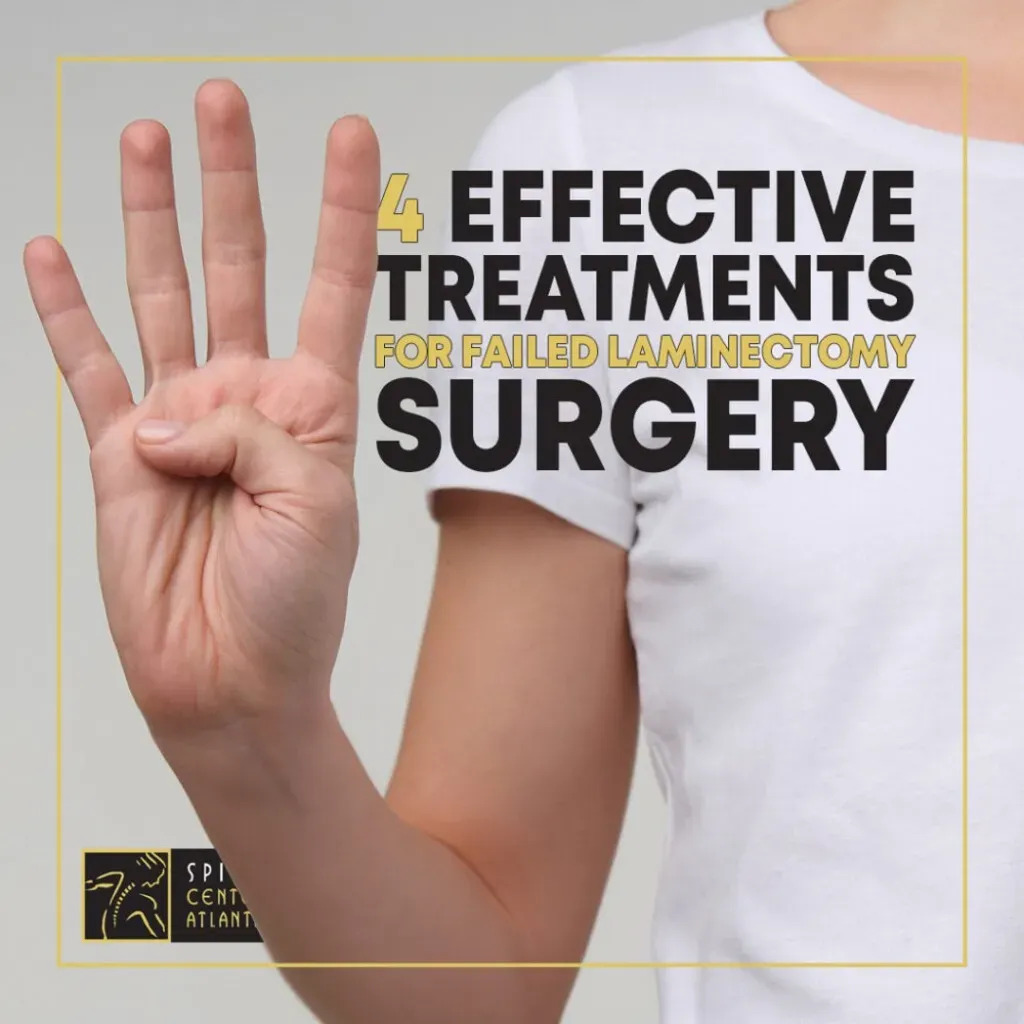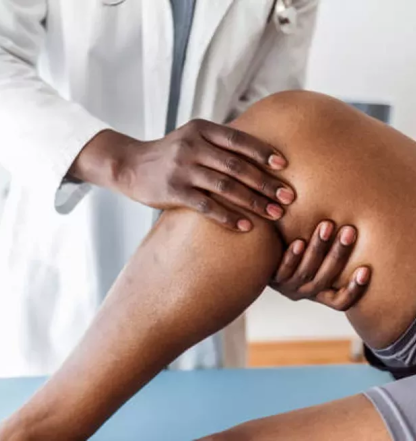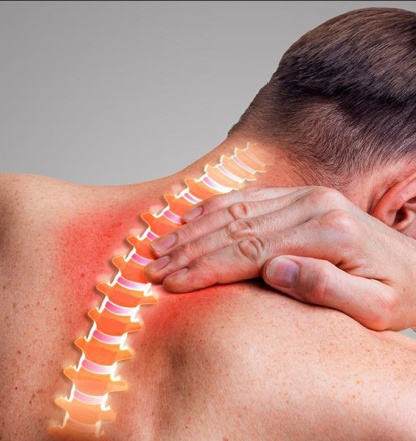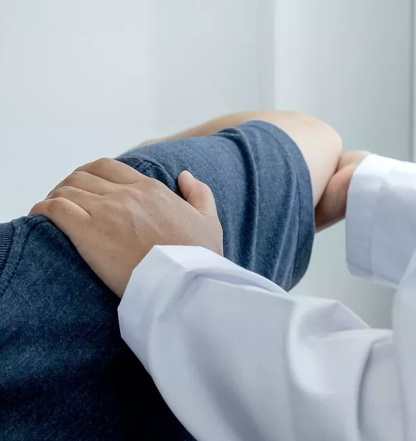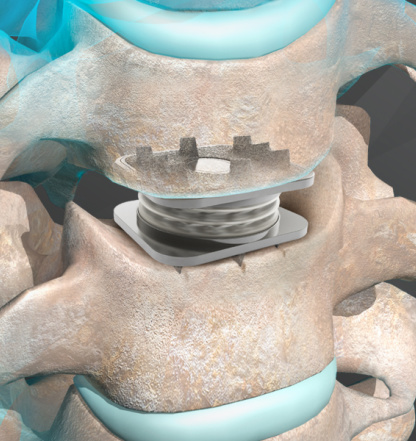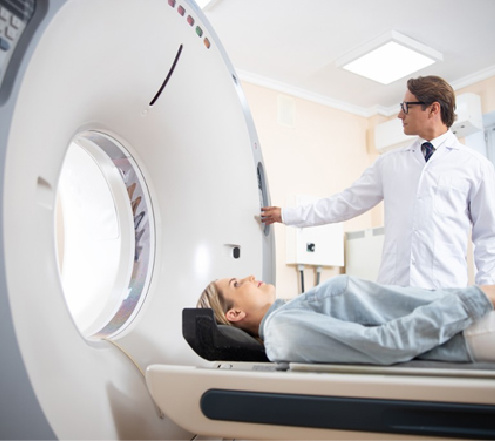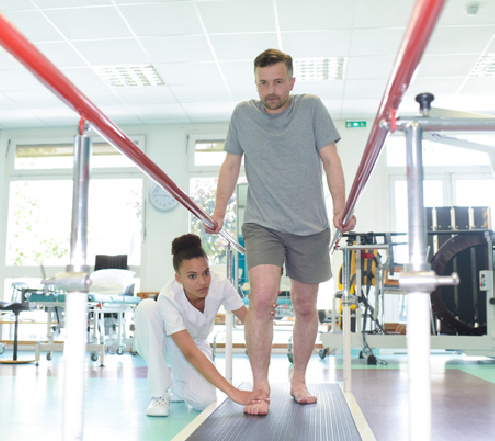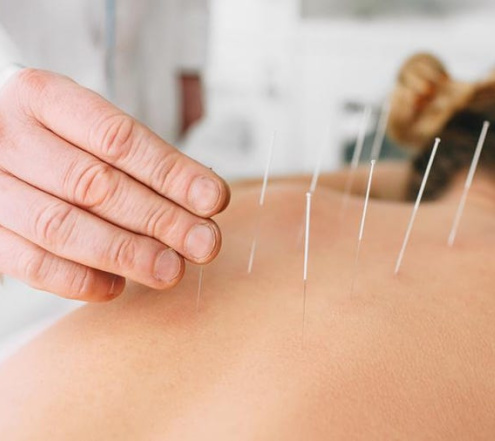A failed laminectomy surgery can be so hard to deal with. In addition to the pain, there is also the emotional distress and frustration that comes with not finding the relief you were hoping for.
A failed laminectomy surgery can be so hard to deal with. In addition to the pain, there is also the emotional distress and frustration that comes with not finding the relief you were hoping for. Although it is a common procedure that is typically successful, there are a number of contributors that can lead to complications and problems after undergoing laminectomy surgery. Also known as failed back surgery syndrome, encountering spine pain after a procedure such as a laminectomy does not mean you are out of options.
Take a moment to explore the following four treatments that many people attempt after a failed laminectomy surgery. By educating yourself as a patient, our goal is to help you feel engaged and empowered as you seek the relief you deserve. If you have any questions or are ready to take the next step in your treatment journey, contact the dedicated Spine Center Atlanta team today.
1. Physical Therapy, Including Aquatic Therapy
Failed laminectomy surgery has a range of causes and contributors, from nerve damage due to surgical error to excessive scarring to infection. In some cases, it can be difficult to pinpoint the exact cause. However, in nearly any case of failed back surgery syndrome, from decompression surgeries like laminectomy to spinal fusion, doctors will recommend that patients pursue physical therapy and rehabilitation.
Physical therapy can offer patients dealing with pain from a failed laminectomy the following benefits:
- Increased strength in key supporting muscles that can help relieve pressure on the spine
- Improved flexibility and range-of-motion in the affected area
- Better posture and mechanics that can help reduce painful positions and movements
- Increased circulation that can stimulate the healing process
One form of physical therapy that is particularly effective for patients dealing with symptoms of failed laminectomy surgery is aquatic therapy. Also known as pool therapy, this form of treatment uses the increased buoyancy of a pool, which decreases stress on the spine, combined with the increased resistance, which helps develop muscles.
2. Medication and Pain-Relieving Injections
Another nonsurgical option for failed back surgery syndrome caused by a failed laminectomy surgery is to use medication. While many patients likely attempted medication without success before the procedure, it may be beneficial to relieve spine pain while the progress of the failed laminectomy surgery is monitored. From over-the-counter to prescription medication, using medication as directed can help patients find the relief needed to pursue other options like physical therapy and stay active.
In some cases, interventions such as a corticosteroid injection can help reduce pain and inflammation for a length of time. Although injections are not a long-term solution, they can help patients perform exercises and activities in a similar way to other medications.
3. Focusing on a Spine-Healthy Lifestyle
Instead of one primary type of treatment, this step highlights a number of smaller measures that patients can and should take that can combine to have a positive impact on a failed laminectomy surgery. Working on improving your overall health, particularly after surgery can have a tremendous impact on the health of your spine, reducing spine pain and other related symptoms of postsurgical complications.
Here are some beneficial steps anyone can take:
- Getting regular exercise to strengthen the body and improve circulation
- Eating a nutrient-rich, anti-inflammatory diet
- Improving posture and mechanics
- Managing your weight to reduce pressure on the spine
- Quitting tobacco use and limiting alcohol, if needed
Often, it can take some time to find the right combination of nonsurgical treatments and lifestyle changes. But by committing to wellness and conservative care, many patients can overcome symptoms of a failed laminectomy surgery without the need for a second procedure.
4. A Follow-Up or Revision Surgery
Depending on the nature of the failed back surgery syndrome diagnosis, undergoing a follow-up surgery or a revision may be necessary. This can either mean the surgeon going in to perform the correct procedure if it was not done correctly the first time, or performing a new type of procedure such as a spinal fusion to address new issues that have developed.
The right surgical approach will vary on a case-by-case basis, but if you are considering a procedure to address a failed laminectomy surgery, experience matters. Always ask if your surgeon has experience in treating your specific complication, and don’t be afraid to seek out multiple opinions to ensure there is a consistent diagnosis.
Just like initial spine surgery, any follow-up procedure for a failed laminectomy surgery is generally seen as a last resort. When treating failed back surgery syndrome, trust in your surgeon to make the correct diagnosis and achieve a positive outcome is even more important.
Learn More About Your Options When You Contact Spine Center Atlanta
At Spine Center Atlanta, our expert team has decades of combined experience in identifying the causes of failed back surgery, including laminectomy. We can offer patients a highly personalized therapeutic plan that covers the entire treatment spectrum. We will perform an extensive evaluation to identify the source of your spine pain and other symptoms to ensure that any recommended therapies have the best chance of success.
From our state-of-the-art rehabilitation center to advanced outpatient surgery by surgeons with extensive experience in correcting surgical complications, we’re passionate about giving patients the relief they deserve. This is why patients come to us from across the United States to receive the highest level of patient-centered care.
To learn more and schedule an appointment, contact us today.


